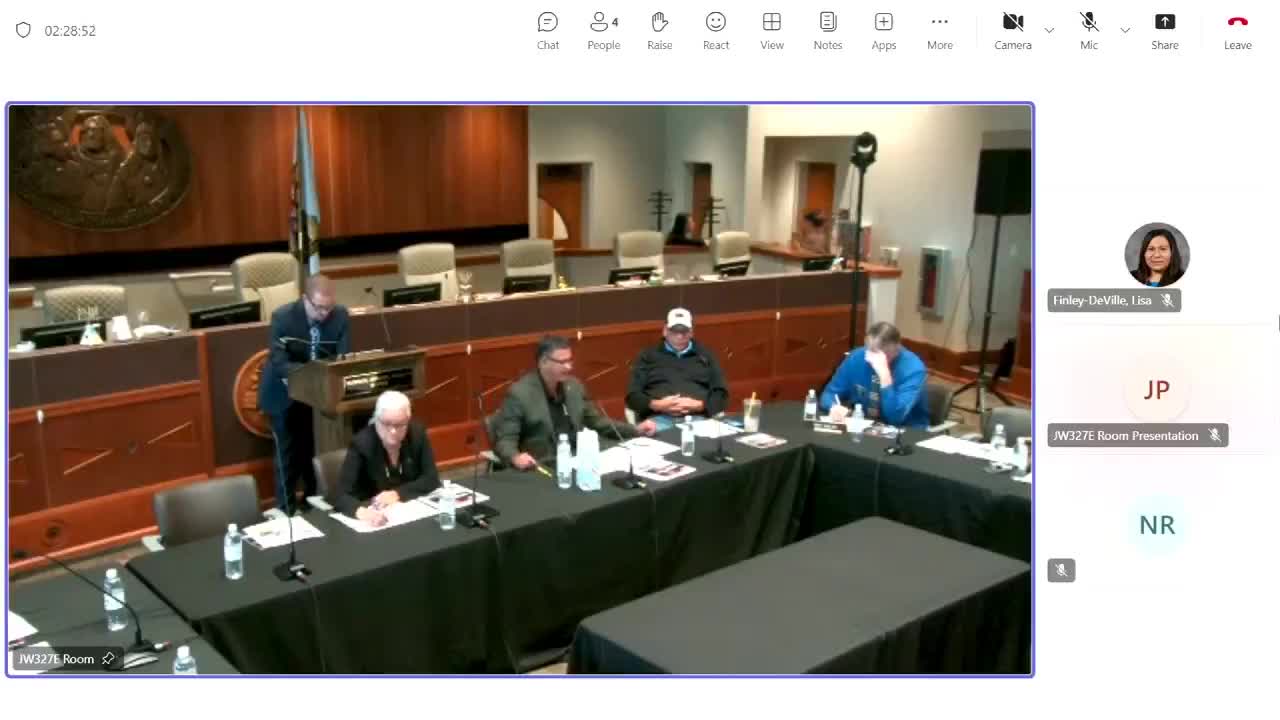MHA and Good Road Recovery describe treatment continuum, urge state help to expand beds
Get AI-powered insights, summaries, and transcripts
Subscribe
Summary
Tribal recovery leaders described a six‑program continuum — hotline, detox, residential treatment, Healing Hearts women's and children's campus, outpatient and sober living — and again pressed the state for IMD waiver support and Medicaid administrative changes to expand local capacity.
Representatives of MHA Recovery Services and Good Road Recovery Center told the Legislative Tribal‑State Relations Committee about the treatment options currently available on the reservation and urged state support to remove administrative barriers that limit local capacity.
Justin Shook, Good Road’s executive director, described the center’s residential and social‑detox operations and said vacancies in state and local behavioral‑health workforces mean patients are often sent out of state. “We have 30 to 50 people outside of the state of North Dakota at any given time because there’s just not enough beds,” he said, summarizing the local shortage and the program’s use of out‑of‑state placements.
Dr. Joy Fralick, a family physician and director of MHA Recovery Centers, outlined the tribal model of care: a 24/7 intake hotline that triages to social detox or residential treatment (Good Road), Healing Hearts Lodge for women and children, outpatient services, and multiple sober‑living homes on and off the reservation. Fralick said Healing Hearts tracks alumni outcomes and reported that about 51% of alumni remain sober after two years. She described service constraints rooted in Medicaid billing rules: without an IMD waiver or state administrative agreement the tribe cannot bill Medicaid for residential programs above 16 beds.
Both presenters urged two administrative changes: (1) the state should support an IMD waiver that would allow Medicaid reimbursement for larger tribal residential facilities; (2) the state should consider presumptive eligibility options so providers can begin billing immediately at admission rather than waiting for complete paperwork. Good Road’s director also described progress on law‑enforcement cooperation and prevention measures: increased canine teams, surveillance and partnerships that tribal staff said correlated with falling local overdose counts in recent years.
Committee members asked about regional collaboration. Dr. Fralick said other tribes, including representatives from Belcourt (Turtle Mountain) and Standing Rock, have indicated support for a statewide waiver request and that providers are coordinating where possible. Members of the committee approved a motion to draft legislation about IMD waivers (see separate article on the committee action) and invited tribal providers to review any draft language.
The recovery leaders cautioned that expanding locally requires both a policy change and sustained operational funding: staff recruitment, licensing, and third‑party billing systems remain practical barriers even if reimbursement rules change. They urged state support for administrative steps that would make the tribe’s treatment network financially sustainable and able to serve other tribal and nontribal residents of western North Dakota.
